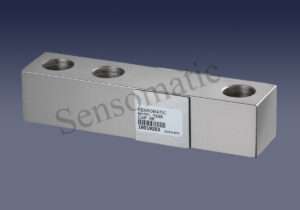Universal Testing Machines (UTMs) are critical tools used across industries to evaluate material properties such as tensile strength, elasticity, and compression resistance. A load cell plays a crucial role in any UTM by converting force into an electrical signal that can be measured and recorded accurately. Among the various types of load cells, the universal load cell is known for its flexibility and accuracy, making it a preferred choice for diverse testing applications.
In this article, we will explore the features of the universal load cell, and its importance in UTMs, and provide a comprehensive guide to choosing the right load cell, including a comparison of key models like UNV-C, UNV, and SB.
What is a Universal Load Cell?
A universal load cell is a versatile sensor designed to measure both tensile and compressive forces in various testing scenarios. It uses a strain gauge technology that converts the mechanical force (tension or compression) into an electrical signal, which can then be processed to determine the force applied.
These load cells are known for their adaptability across multiple applications and industries, including construction, automotive, aerospace, and material research. The universal load cell models like UNV-C, UNV, and SB are popular due to their precision, robustness, and flexibility.
Why Choose a Universal Load Cell for UTM?
In UTMs, precision is paramount. A universal load cell offers several advantages:
- Versatility: The universal load cell can measure forces in both tension and compression, making it suitable for a variety of material testing applications.
- High Precision: These load cells deliver accurate, reliable force measurements, essential for material characterization.
- Wide Load Range: Available in different load capacities, from light to heavy-duty applications.
- Durability: Built to withstand harsh industrial environments, these load cells are durable and long-lasting.
Key Models: UNV-C, UNV, and SB
To better understand which model suits your needs, let’s compare the three main types of universal load cells: UNV-C, UNV, and SB.
| Model | Description | Applications | Features | Load Capacity |
| UNV-C | Compact and highly accurate, ideal for small-to-medium tests | Used for tensile and compression testing of materials | High linearity, low temperature sensitivity, compact design for limited space | Typically 100 N to 10 kN (depending on specific configurations) |
| UNV | Standard model for versatile, general-purpose applications | Broad range of material testing in labs and industry | Excellent accuracy, durability, and stability in dynamic and static load testing | Ranges from 1 kN to 200 kN |
| SB | Heavy-duty load cell for extreme conditions | Heavy material testing, construction, aerospace | High precision under extreme conditions, robust construction for heavy-duty applications | 10 kN to 500 kN or more (depending on configuration) |
Features of the Models:
- UNV-C: Its compact design makes it perfect for applications where space is a concern. Despite its smaller form factor, it maintains high accuracy and stability under typical test conditions.
- UNV: Known for its broader load capacity and robustness, the UNV model offers excellent performance in both laboratory and industrial environments.
- SB: Designed for heavy-duty applications, the SB model is built to withstand high load capacities and extreme environmental conditions, ideal for industries like construction and automotive.
Factors to Consider When Choosing a Universal Load Cell for UTM
When selecting the right universal load cell for your UTM, several factors must be considered:
1. Load Capacity
It is essential to determine the maximum force that your UTM will need to measure. Load cells come in various sizes, from light-duty models to heavy-duty variants. Ensure the chosen load cell can handle the expected force without exceeding its capacity.
2. Accuracy
Accuracy is crucial in testing, especially when dealing with materials that require precise measurement. Universal load cells are known for their high precision, but make sure to select one that meets the specific tolerance standards required for your application.
3. Temperature Sensitivity
The operating environment’s temperature can affect the accuracy of the load cell. Models like UNV-C are designed to be resistant to temperature fluctuations, but it’s still important to select a load cell that fits your testing conditions.
4. Material Compatibility
Load cells made from stainless steel or other corrosion-resistant materials can handle harsh environments. Choose a load cell that will not degrade over time when exposed to chemicals, moisture, or high-pressure conditions.
5. Versatility in Application
If you plan to use the load cell for multiple testing scenarios, such as tensile, compression, or cyclic loading, selecting a Versatile Universal Load Cell for Multiple Application is crucial. Universal load cells excel in this area, offering flexibility for a wide range of tests.
Universal Load Cell Price: What to Expect
The price of universal load cells can vary depending on factors like the load capacity, material quality, and specific features. On average:
- Standard models: These are more affordable and generally range between ₹10,000 and ₹50,000 (INR) depending on specifications.
- Heavy-duty models: For industrial-scale applications, especially in testing large-scale or high-load materials, the price could range from ₹50,000 to ₹200,000 or more (INR).
The universal load cell price will also vary based on the manufacturer’s reputation and the after-sales support provided, including calibration services and warranties.
Conclusion
The universal load cell is a critical component for Universal Testing Machines (UTMs) across a variety of industries. Whether you’re conducting tensile, compression, or other material tests, selecting the right load cell is essential for accurate and reliable data.
By understanding the different models available—such as the UNV-C, UNV, and SB—and considering factors like load capacity, temperature sensitivity, and versatility, you can ensure optimal performance for your UTM.
In addition, working with the best load cell manufacturers in India ensures you get a product that meets your specific needs while maintaining reliability and precision.
Whether you’re looking for a versatile universal load cell for multiple applications or a heavy-duty model for high-capacity tests, there’s a wide array of options available to suit your requirements.










